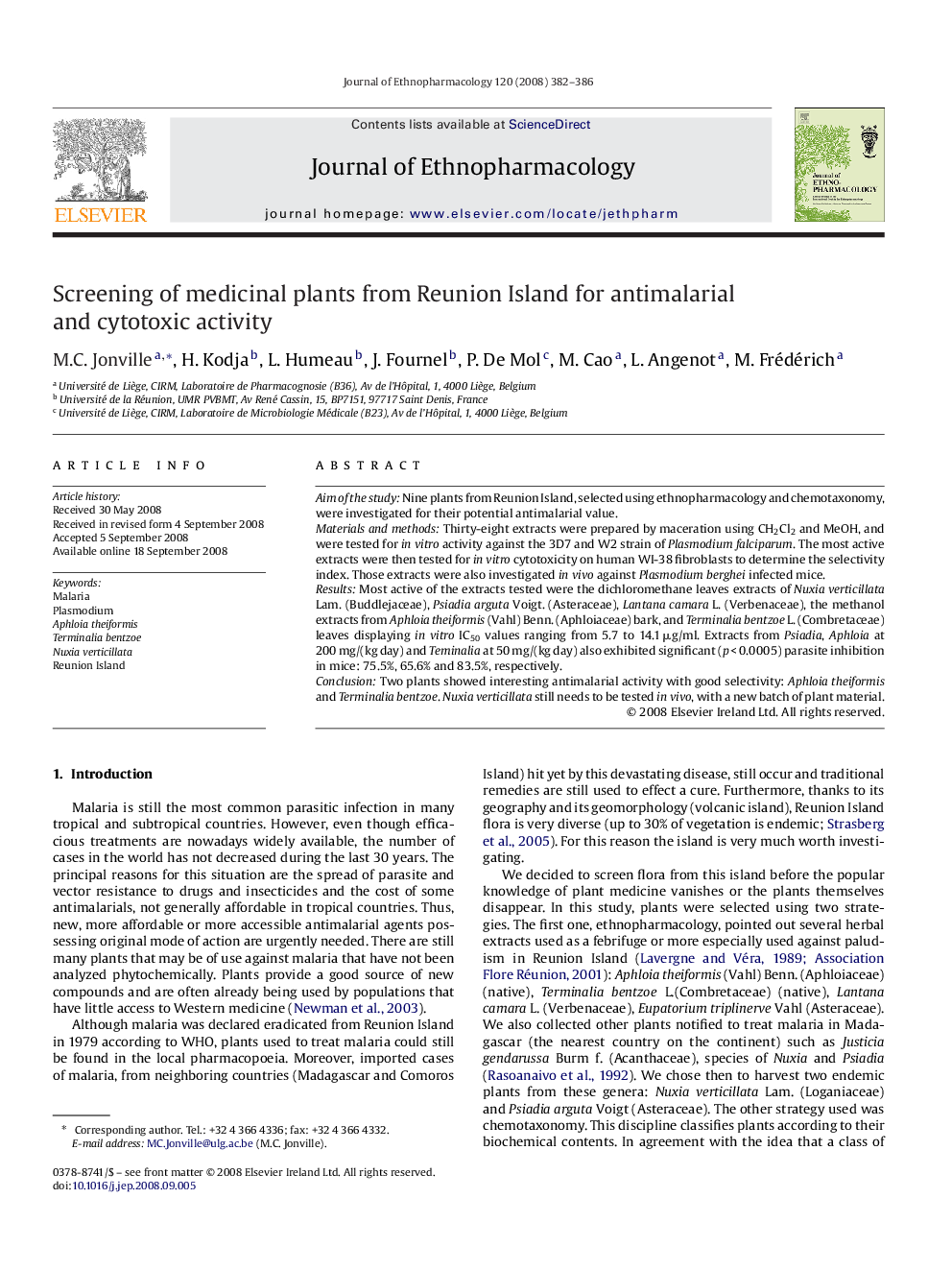| Article ID | Journal | Published Year | Pages | File Type |
|---|---|---|---|---|
| 2546309 | Journal of Ethnopharmacology | 2008 | 5 Pages |
Aim of the studyNine plants from Reunion Island, selected using ethnopharmacology and chemotaxonomy, were investigated for their potential antimalarial value.Materials and methodsThirty-eight extracts were prepared by maceration using CH2Cl2 and MeOH, and were tested for in vitro activity against the 3D7 and W2 strain of Plasmodium falciparum. The most active extracts were then tested for in vitro cytotoxicity on human WI-38 fibroblasts to determine the selectivity index. Those extracts were also investigated in vivo against Plasmodium berghei infected mice.ResultsMost active of the extracts tested were the dichloromethane leaves extracts of Nuxia verticillata Lam. (Buddlejaceae), Psiadia arguta Voigt. (Asteraceae), Lantana camara L. (Verbenaceae), the methanol extracts from Aphloia theiformis (Vahl) Benn. (Aphloiaceae) bark, and Terminalia bentzoe L. (Combretaceae) leaves displaying in vitro IC50 values ranging from 5.7 to 14.1 μg/ml. Extracts from Psiadia, Aphloia at 200 mg/(kg day) and Teminalia at 50 mg/(kg day) also exhibited significant (p < 0.0005) parasite inhibition in mice: 75.5%, 65.6% and 83.5%, respectively.ConclusionTwo plants showed interesting antimalarial activity with good selectivity: Aphloia theiformis and Terminalia bentzoe. Nuxia verticillata still needs to be tested in vivo, with a new batch of plant material.
